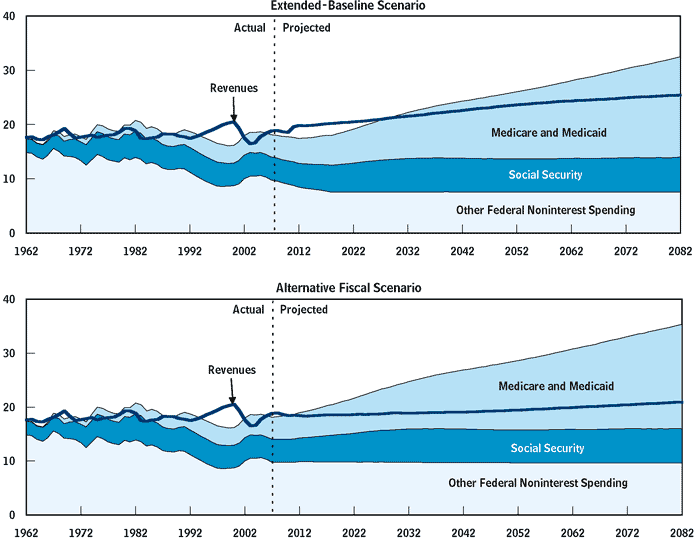The Impact of Medicare on Health Care Spending
Some more interesting research from NBER, this time on the impact of Medicare on the health care industry. I’ve argued in the past that one of the effects of Medicare would have been to push up the price of health care not only for the elderly, but for everybody. This follows form the well known outcome that when you subsidize anything people get the subsidy will demand more of it. Further, you’d also expect an increase in demand for compliments such as prescription drugs and other health care related items not necessarily covered by Medicare.
This latest research from the NBER seems to bear this out.
At an annual cost of $260 billion, Medicare is one of the largest health insurance programs in the world. Providing nearly universal health insurance to the elderly as well as many disabled, Medicare accounts for about 17 percent of U.S. health expenditures, one-eighth of the federal budget, and 2 percent of gross domestic production. Medicare’s introduction in 1965 was, and remains to date, the single largest change in health insurance coverage in U.S. history.
Finkelstein estimates that the introduction of Medicare was associated with a 23 percent increase in total hospital expenditures (for all ages) between 1965 and 1970, with even larger effects if her analysis is extended through 1975. Extrapolating from these estimates, Finkelstein speculates that the overall spread of health insurance between 1950 and 1990 may be able to explain at least 40 percent of that period’s dramatic rise in real per capita health spending.
Funny, we don’t hear about this kind of an effect from those who sing the praise of Medicare’s supposedly lower administrative costs. This really is a no-brainer here and the only real contribution of this kind research is the quantification of the impact, at least in my view.
What about the benefits of Medicare? Good question,
Such evidence of the considerable impact of Medicare on the health care sector naturally raises the question of what benefits Medicare produced for health care consumers. Finkelstein and McKnight investigate this question, noting. two potential benefits that public health insurance might provide to the elderly:: better health and risk- reduction.
The period after Medicare’s introduction, for example, was one of declining elderly mortality. However, using several different empirical strategies, the authors estimate that the introduction of Medicare had no discernible impact on elderly mortality in its first ten years in operation. They present evidence suggesting instead that, prior to Medicare, elderly individuals with life- threatening, treatable health conditions (such as pneumonia) sought care even if they lacked insurance, as long as they had legal access to hospitals.
Even absent measurable health benefits, Medicare’s introduction of Medicare may still may have benefited the elderly by reducing their risk of large out-of-pocket medical expenditures. The authors document that prior to the introduction of Medicare, the elderly faced a risk of very large out- of- pocket medical expenditures. The introduction of Medicare was associated with a substantial (about 40 percent) reduction in out-of-pocket spending for those who had been in the top quarter of the out- of- pocket spending distribution, the authors estimate.
So for the first 10 years Medicare had no discernable impact on the mortality of the elderly. Obviously extending that analysis to more recent periods is called for and might indicate that there is a positive impact on the mortality for the elderly.
But at the same time we’d also have to extend the analysis past 1990 to get an idea of how much of an impact Medicare has had on health care spending and also forecast out the impact for the future. After all, we are about to see the Baby Boomers retire and that will mean more and more people going into Medicare. However, there are other considerations that may argue in favor of Medicare. The enacting of Medicare may have helped in the adpotion of new medical technologies which has had significant benefits in terms of life expectancy.




